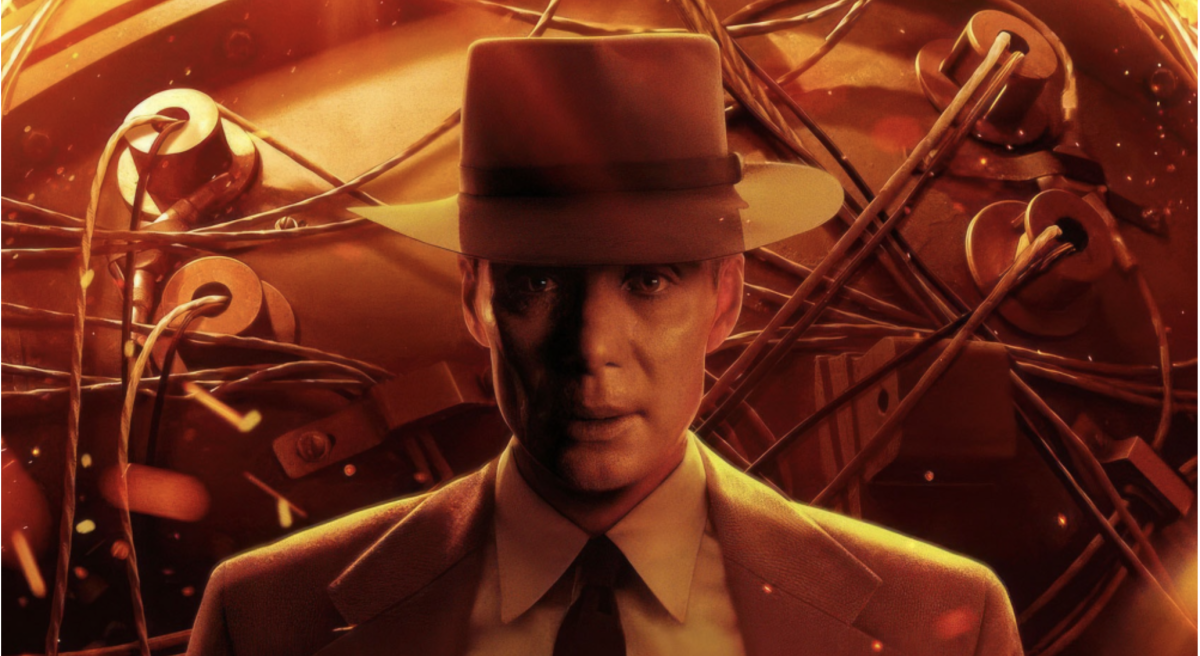
As a movie, Oppenheimer is long but well worth watching. Photo: Supplied.
“Prometheus stole fire from the gods and gave it to man. For this, he was chained to a rock and tortured for eternity.”
Such are the prophetic words that begin Christopher Nolan’s latest film, Oppenheimer, about one of the 20th century’s greatest theoretical physicists, and the man known as the ”father of the atomic bomb”.
How does a man develop such powerful science, see it used by politicians, and then live with the legacy of creating the most devastating weapon used on a human population at the end of the war when two nuclear bombs were dropped over Japan?
These vexing questions are set in a time when American scientist J Robert Oppenheimer was called in to take over the Manhattan Project in 1942, to develop nuclear weapons.
Before the start of the war the Germans had discovered nuclear fission in 1938, but largely abandoned it after the invasion of Poland. The Americans may or may not have known this, but clearly felt it hugely important to be able to match the Axis power’s might.
America had just been drawn into the conflict after the bombing of Pearl Harbour and was keen for retribution.
Oppenheimer was Jewish and in that same year, 1942, the concentration camps started operating at full capacity after the Nazis had persecuted Jews for more than a decade,.
It’s clear from the start that theoretical physics are where Oppenheimer’s talents lie. Here, he finds his inner voice. In Germany, he meets Werner Heisenberg, a pioneer of quantum mechanics and a man often associated with Nazi Germany. A cursory glance will show that’s either not correct, or partially correct at best (he had been referred to as a “white Jew”).
It all plays into a particular mindset, and Nolan laces these threads to give the film its urgency. The Manhattan Project itself is pulled together with pragmatic haste by the bullish Major General Leslie Groves (Matt Damon, who gives the film some much-needed levity).
Aside from the work that consumes his almost every waking moment, Nolan draws the audience into Oppenheimer’s private life, primarily with two women, Jean Tatlock (Florence Pugh) and his wife, Kittle (Emily Blunt).
These women are barely sketched though Blunt gives it her all. They’re an adjunct to the man, who is painted as an incredibly self-obsessed yet strangely enigmatic figure who cares little for people. The only thing that really matters, in the end, is the goal of creating the bomb.
And herein lie the myriad contradictions of the man.
When his security clearance is revoked after World War II, he is cautioned to let it go, as he’s a war hero after all. He decides to challenge it, and the second half of the film is something of a ritual humiliation, a kangaroo court that he can neither fathom nor fully comprehend.
Cillian Murphy plays Oppenheimer and has put in the performance of his career, absorbing the great ambiguity of the physicist’s conflict. His ultimate nemesis, the US politician Lewis Strauss, is played by Robert Downey Jr in a role that requires enormous restraint. He is outstanding.
There is a notable supporting cast led by the less-seen Josh Hartnett, Rami Malek and a host of notable cameos.
Nolan brings so much weight to the script and direction, but also employs his enormous production values in tying together the mindset of a visionary; it is his best film yet.
The short and long-term nuclear fallout from Hiroshima and Nagasaki continues to this day and is the ultimate warning to mankind.
For me, this is clearly the film of the year.
At three hours it barely scratches the surface of an individual, clouded by genius and hubris, who pursues a goal that binds him to a rock and tortures him for eternity.
As the character says at one point in the film, quoting from the Bhagavad Gita: “Now I become Death, the destroyer of worlds.”
Oppenheimer is showing at most major cinema chains.
Original Article published by Marcus Kelson on Riotact.


